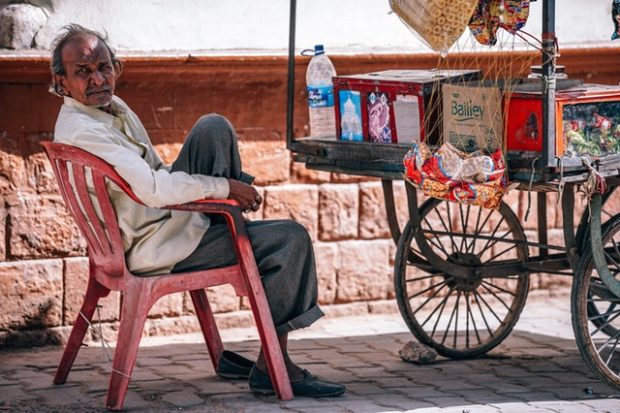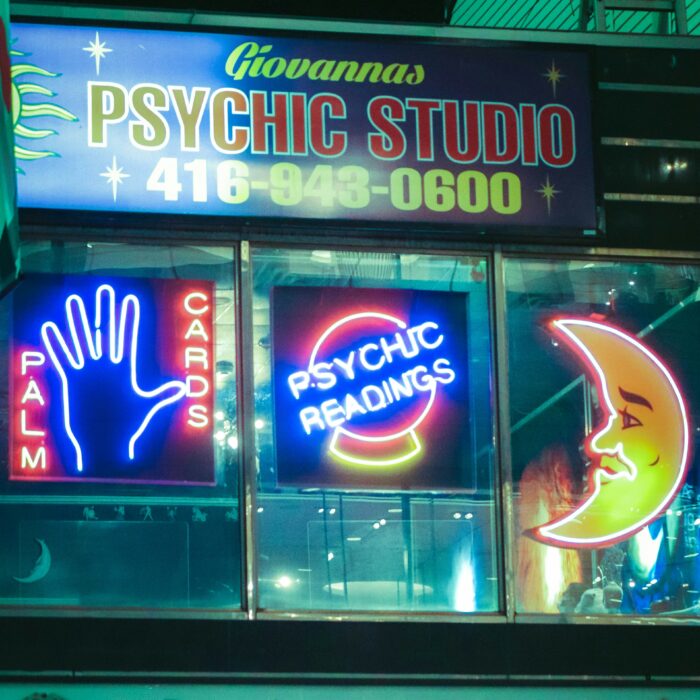You have no items in your cart. Want to get some nice things?
Go shopping When we touch down at Bangalore’s international airport, it’s 2.00 a.m.: peak time for arrivals from the West. Our connecting flight from Frankfurt is filled with Indian aunties and uncles – generic terms for any elders in India – and their progeny. Their excitement had grown perceptibly during the flight, peaking during the midnight breakfast served just prior to landing. In the border-entry queue, they’re wide-awake, eager to collect their luggage and greet the relatives who are swarmed outside the airport’s glass doors.
When we touch down at Bangalore’s international airport, it’s 2.00 a.m.: peak time for arrivals from the West. Our connecting flight from Frankfurt is filled with Indian aunties and uncles – generic terms for any elders in India – and their progeny. Their excitement had grown perceptibly during the flight, peaking during the midnight breakfast served just prior to landing. In the border-entry queue, they’re wide-awake, eager to collect their luggage and greet the relatives who are swarmed outside the airport’s glass doors.
The line moves forward at a crawl, and I doze while standing up. When we reach the front, we explain to the border agent, for the umpteenth time, that my husband and I are married. Have been for seven years, in fact. Despite assumptions to the contrary, this handsome South Indian at my side is not my guide. Yes, my skin pigment does look fair; yes, my ancestors could be accurately described as mostly European. We’re married, I tell him wearily, repeating the same with the customs agent, followed by the person who re-checks my passport, and the one who cross-references the tags on my suitcases. They all give me the Indian head nod, a quick movement to the left and the right that doesn’t mean yes or no. It is simply an acknowledgement that words have been spoken.
After an hour, we’re nearly out of the airport. The only remaining hurdle is a security agent who scans our bags once last time, on the way out of the baggage-claim area. What they’re looking for in that final scan, God only knows.
A giant statue of Ganesha, the elephant god, silently blesses us on our entry to India. I take a picture, the first one of the trip. I feel a connection to Ganesha spanning across the years. We received dozens of Ganesha statuettes as presents when we held our engagement ceremony in Bangalore in 2009. He is the god of new beginnings. A good omen, perhaps, to feature him in my first photo.
Outside, breezes scatter dust-clouds around crowds of relatives. Street dogs, an ancient scruffy Asiatic breed, sample the leavings from garbage bags and coffee-shop crumbs. If you didn’t know the time, you might infer from the throngs and the packed airport restaurants that it was rush-hour on a Friday. We find Amma and Appa, my husband’s parents, who are faithfully waiting for us, as they always do when we arrive in India. After a tearful hello, they ask us what we have eaten, and if we are hungry – snacks are freshly prepared for the ride, and can be eaten in the car. I dutifully describe the contents of the midnight breakfast provided by the airline: a savoury upma, idli, and a side of fresh fruit. This satisfies my mother-in-law, for the time being.
The first few times I visited, my in-laws would book a car with a driver well in advance for the airport round-trip. Nowadays, we tap open the Uber app, and locate a driver within minutes. Beyond the airport, the night is deep, and the highway is dark. We share the road with a few long-distance trucks, roaming dogs, and the vendors who sleep with their carts. I nod off, between potholes. When I bite my tongue, the iron taste and dull ache fully awaken me for the rest of the car ride.
In a few hours, the road will be filled with a cacophony of careening buses, scooters, trucks, and auto-rickshaws, all competing for who can honk the loudest and longest. I picture the roadside vegetable carts, flower vendors, fried snacks, and piles of tender coconuts that will be on the streets soon.
When we reach home – an apartment in a middle-class neighbourhood of Bangalore – sleep overtakes us before unpacking can. But, as much as we try to rest our weary bodies, wakefulness pries our eyes open again within a couple of hours. It’s 7.00 p.m. back home, hardly time for napping. My husband and I stare at each other and at the gold wall clock, its ticking unable to be denied as it burrows into our consciousness. 5.30 a.m.
We rummage around in our luggage for workout clothes and sneakers, tie up our shoelaces, and step out into the narrow paths and alleyways of Basaveshwarnagar. 30 years ago, we would have encountered vast swaths of empty space speckled with a few modest shanties, apartment blocks and honking auto-rickshaws. 20 years ago, this neighbourhood was developing, yet still wasn’t formally incorporated as part of Bangalore. Now, it’s a bustling, high-density district smack-dab near the main train station of the city. Upscale shopping and coffee shops (including my favourite, Café Coffee Day – as ubiquitous in urban India as Starbucks is in New York) cluster next to fluorescent bakeries, mom-and-pop textile mills, one-man tailor shops, and shacks. There’s a marriage hall next to a print shop next to a newsstand. Buildings with cottage industries for sewing and papad packaging are located directly abutting high-rises and specialty hospitals.
We venture down the streets that are lit, around half of them. We run past barking dogs, and pick our way around cow dung and bags of spicy cornchips. We step lightly over manholes and dodge hanging electrical wires. We run past the local mosque, issuing its first daily call to prayer. We run until the street vendors wake up and start their cries, advertising their wares. I ask my husband what they are saying in Kannada, and he tells me as we pass by. Sweet lime juice, squeezed fresh for you, come and get it. Pomegranates, 20 rupees each. Tender coconut, fresh and young. Jasmine flowers, for pooja, or for the ladies to weave into their hair.
For the last few blocks, we jog and then cool down. Signalling that the day is underway, smells of sizzling garlic, chilli, and garam masala waft from open-windowed kitchens.
A couple of dog-walkers stride by, endeavouring to keep their leashed Labradors away from the feral mutts who growl feistily to defend their territory. The neighbourhood has steadily grown in prosperous residents such as the dog-walkers, but we still spot beggars, stooped street-sweepers, and old women walking with giant parcels on their heads. On the topic of incredible head-carrying talent, we even see one young man carrying a tree trunk and walking by at a brisk pace, destination unknown.
At home, we ascend the stairs to the apartment house’s rooftop. It’s a place used for hanging laundry to dry, but we unfurl yoga mats and complete our sun salutes next to the sheets and saris. Behind my in-laws’ building, I see signs of life stirring in other apartments. Men in lungis, lighting incense sticks and chanting prayers. Women fixing their hair and cooking dosas for breakfast. Children doing what they do anywhere and everywhere: wiping sleep from their eyes, pulling on school clothes, brushing their teeth. Every once in a while, they catch sight of me and stare. I wave back.
As far as my eye can see, two- and three-story apartment blocks rise and fall on gently sloping urban hills. Painted in pinks, bright greens, light blues, and covered with a generous coating of dust, the concrete buildings glint in the sunlight. Overhead, birds of prey complete their first laps of the morning. I see dozens of them swooping and soaring high over the city. What are they diving for, I wonder? Street rats, perhaps? Garbage?
I observe vultures picking over the carcass of a dead puppy on my run the following day, and shudder.
But the first morning, after yoga practice and meditation, I look forward to everything that is to come. There would be masala dosas, for one thing – my husband’s favourite breakfast food, consisting of a thin pancake with a spicy potato-and-onion mixture inside, prepared fresh by Amma in her kitchen. There would be visits to temples, shopping malls, and coffee plantations; and, if I was lucky, my husband’s uncle’s ice cream factory. I’d be seeing the Tamil and Telugu sides of the family; the cousins, aunties, and uncles; the new babies and the ones who were already growing up fast.
Not to mention, there would be lots more mouthwatering South Indian vegetarian food to savour, three meals a day. The centrality of food, both to my experience and to the average Indian’s, could be noted in the frequency of questions posed. Dozens of times, we’d be sure to be asked: How was your breakfast? What have you eaten today? And in particular, they’d ask me: How are you liking the food? Is it too spicy? How does it compare to what you would eat back in the United States?
From years of visits to India, I knew how to respond. I’d shake my head quickly, nodding to the left and to the right. I’d smile. And I’d say: The food here is very good, auntie. Extremely tasty. The best in the world.
I’d mean it, too.
Join us this summer for the 8th edition of the Litro World Series Summer Literary & Arts Festival Get Tickets Here
About Emily Madapusi Pera
Emily Madapusi Pera is a writer based in Providence, RI, and who makes frequent trips to India with her husband. She would like to extend Pongal greetings to the Tamil and Telugu sides of the family; and to offer special thanks to Amma and Appa, who are always there to greet them at the airport.




I could easily visualise all that explained with an added smell of “masala” preparing sweet odour coming from our neighborhood flat while reading this very interesting article ! So realistic writing. Look forward for many more such writings !
For years I have been visiting Banglore and enjoying all the south Indian delicacies; typical streets;and of course her Appa & Ammas caring nature ..for which my children are crazy … but Emily’s essay made me experience it at a different level.A simple yet interesting one.By the way I enjoyed her nod…
I could visualise the entire scene. I think that is the success of Emily’s writing skill. I could also see the love and affection she has for her in laws and vice versa. Nice writing Emily. Keep going .
Mouth. Watering.
What a great read. Feels like a light breeze on a slightly sticky morning. Smells like the toasted spices before they coat the potato. Tastes like what I’d really like right now, a cool glass of bright spring wine.